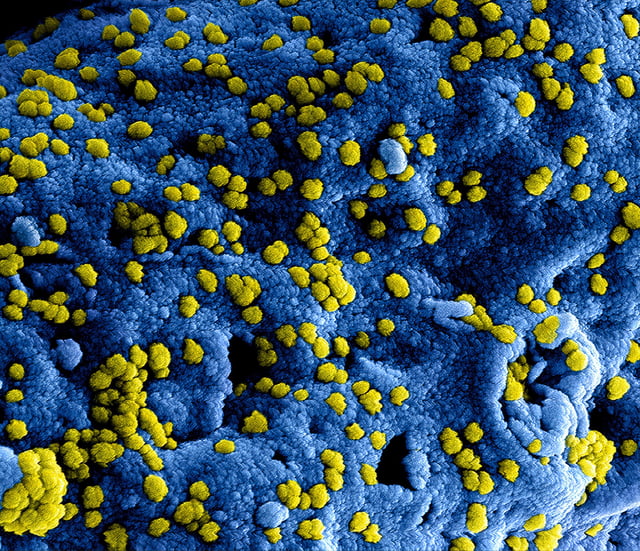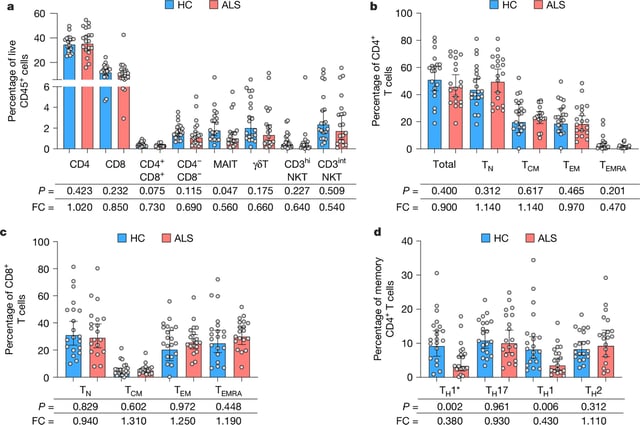Overview
- Researchers from La Jolla Institute for Immunology and Columbia University analyzed blood from 40 ALS patients and 28 controls, finding heightened CD4+ T-cell responses to the neuronal protein C9orf72 compared with other ALS-linked proteins.
- T-cell reactivity was strongest in patients carrying C9orf72 mutations yet was observed across many patients, pointing to broader immune involvement beyond genetic subtypes.
- Two immune profiles correlated with projected survival: a predominantly pro-inflammatory CD4+ response linked to shorter survival and a profile with additional anti-inflammatory CD4+ T cells, including higher IL-10, linked to longer survival.
- Authors and outside experts say the results support an autoimmune component in ALS but do not prove causation, underscoring the need for replication, mechanistic studies, larger cohorts, and standardized assays.
- The work raises prospects for immune profiling as a prognostic tool and for testing immune-modulatory strategies, such as training and reinfusing protective T cells or immunizing in an anti-inflammatory context.



